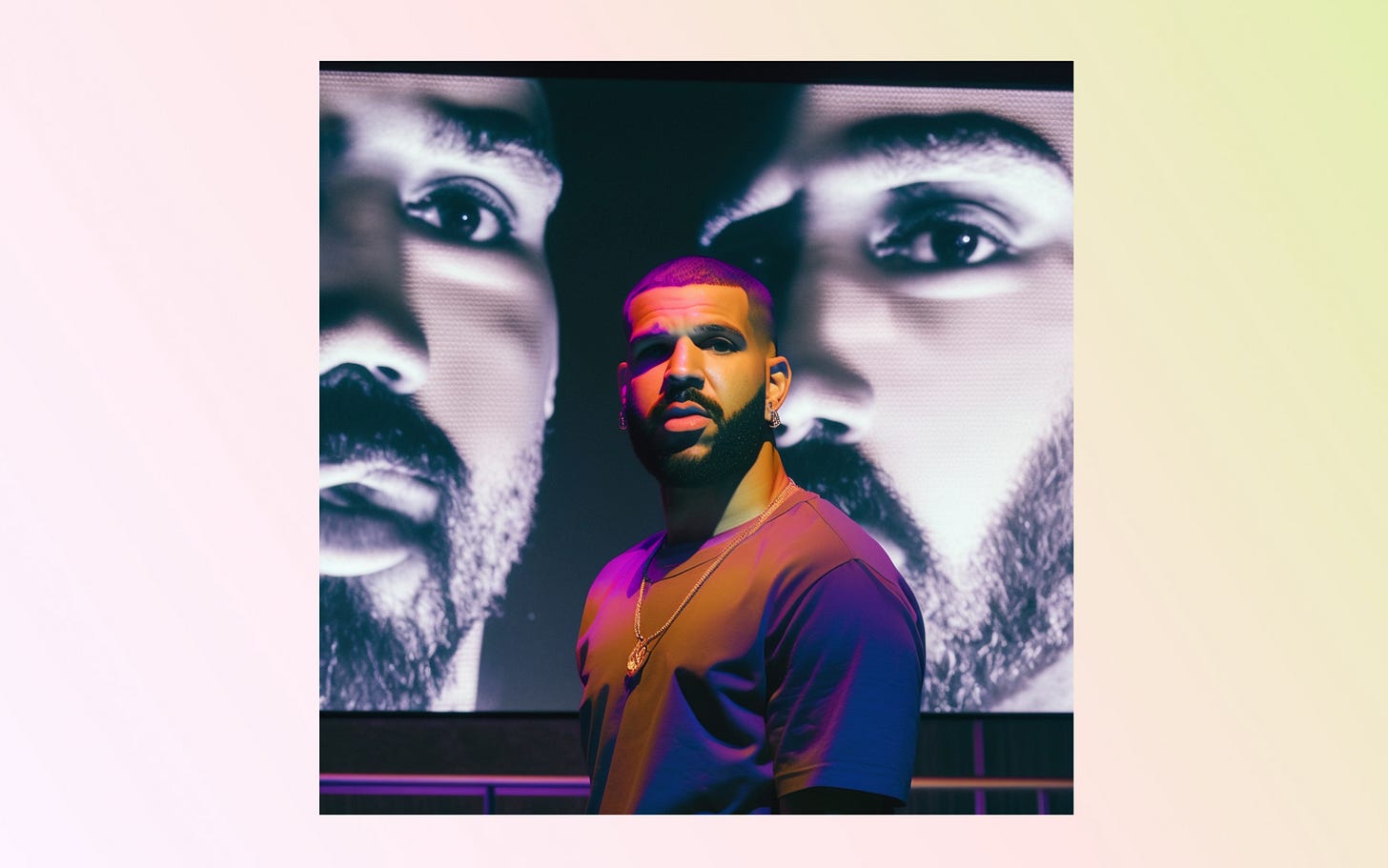Decode #17 Music and AI, the new rules of self expression and nail art as a canvas for rebellion
Good morning! We’re back with another download.
A BIG welcome to strategists Magda, Hannah and Emily, they’ve written some incredible pieces this month and we’re really excited for you to read them!
Currently, we’re addicted to this TikTok trend that gives you facts about sharks. And post Coachella, it’s a fact that NO amount of bad press will ever stop us from loving Frank Ocean!!!! Here’s our favourite Frank song and some Tuesday morning goosebumps for you.
As always, click through to our zine to read the full articles ❤️🔥
01 The new rules of self expression
Magda Domagala
As the web is entering a new, three-dimensional era, its influence on our self-expression is rapidly evolving, resulting in new demands and expectations from brands.
Online social platforms have long been facilitating the creation of digital identities. But whilst many studies have pointed out social media’s damaging effect on its users’ self-esteem due to constant comparison and promotion of unrealistic beauty and lifestyle standards, the opposite is becoming apparent for the embodied web. In fact, the majority of people active in virtual worlds (from gaming to AR, VR, and MR) feel more like themselves online than they do IRL. But why is that and what does it mean for the role that brands play in facilitating their audiences’ self-expression?
02 AI is making Limewire look like child’s play
Rosie Copland
We thought Limewire was an issue for music piracy and the music industry. Then came AI.
In the last few weeks Drake’s voice has been mimicked in AI cover songs in recent weeks, including a version of Cardi B's "WAP" and Bryson Tiller's "Don’t." We saw Twitter blow up with a Weekend and Drake AI generated song Heart on my Sleeve. And only a few days ago Drake spoke out after an AI-generated cover song featured his voice rapping Ice Spice's song, "Munch." Drake shared his thoughts in a (now-deleted) Instagram story - "This is the final straw AI”.
03 Keeping time online
Hannah Seckendorf
It’s become apparent, if it weren’t already long before, that humans and computers operate on different timescales. It feels ridiculously obvious to state that computers don’t keep time like humans do, but it didn’t feel quite tangible until I started seeing AIs act like humans on a daily basis and contribute internet content in a way that was previously our domain. For the last few months, a lot of the content I’ve been sent, looked at, thought about, is AI-generated or at least AI-involved in some capacity.
There’s this question I keep coming back to as I also try to stay on top of it all of simply: How are we going to do this?
04 Nail art as a canvas for rebellion
Emily Evans
One cursory glance around big Tesco will show you that shrinkflation is rife- be it the number of crisps in a packet (surely they’ve reached the lower limit on this now???), the 5 watery strawberries you just paid £4 for, or 500g packets stealthily changing into 450g overnight. At the moment, the effects of the cost of living crisis can still be felt everywhere- but as the economy and our bank accounts get smaller, one thing is growing into the stratosphere: nail art.
05 Brands need to learn to use AI without hurting others
Rosie Copland
The recent backlash against Levi’s AI-generated models highlights the importance of genuine consideration before leveraging AI. Because sometimes, there’s just no need.
Levi’s intentions to advance DE&I within its marketing through AI may have been genuine but its actions have caused more harm than good. This isn’t the first time emerging technology has been misused in the fashion world. Vogue Brazil made a similar decision in leveraging AI models instead of hiring real, diverse talent. And the backlash surrounding virtual influencer Lil Miquela has similar echoes, with followers accusing her creators of queerbaiting in a Calvin Klein ad and making up "relatable" traumatic events in her backstory for clout.
Till next time!
Decode x






